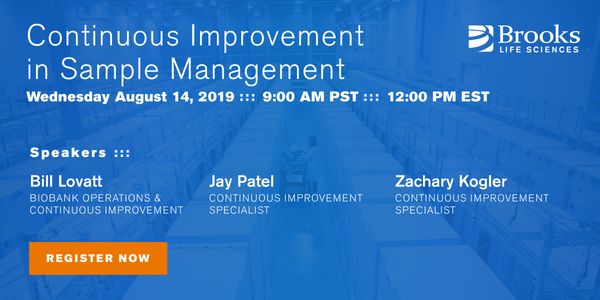Drug Discovery & Development Webinars
Browse our archive of webinars on pharmaceutical and biomedical research from collaborations between pharmaceutical companies, government, biotechnology companies and academia to create new drug discovery opportunities.
Show More
-
SEP 25, 2019 | 8:00 AMDATE: September 25, 2019TIME: 8:00am PT, 11:00am ET This talk will focus on strategies for optimizing expression levels of membrane proteins using the Gibco™ Expi293™ and ExpiCHO™ Expres...
-
SEP 24, 2019 | 8:00 AMDATE: September 24, 2019TIME: 7:00am PDTHigh throughput screening (HTS) is an effective method for identifying putative active compounds for therapeutics. Assays that evaluate changes i...
-
SEP 12, 2019 | 10:00 AMDATE: September 12, 2019TIME: 10:00am PDT, 1:00pm EDT...
-
AUG 29, 2019 | 9:00 AMDATE: August 29, 2019TIME: 9:00am PT/ 12:00pm ET Monoclonal antibodies (mAbs) are a cornerstone of modern biomedical research and biotherapeutics. Therefore, reproducibly obtai...
-
AUG 27, 2019 | 9:00 AMDATE: August 27, 2019 TIME: 9:00am PDT, 12:00pm EDT Immunotherapies targeting PD-1 or PD-L1 have proven remarkably effective for treating cancer in some patients, with considerabl...
-
AUG 14, 2019 | 9:00 AMDATE: August 14, 2019TIME: 9:00am PT. 12:00pm ET Implementation of Lean Methodology in Biobanking Operations to standardize sample management processes is effective. Each proce...
-
AUG 13, 2019 | 10:00 AMDATE: August 13, 2019TIME: 10:00am PDTWhether you are new to live-cell imaging or an experienced researcher, this webinar will show you how to obtain publication-quality live-cell image...
-
JUN 26, 2019 | 9:00 AMDATE: June 26, 2019TIME: 9:00am PDT, 12:00pm EDT An excessive number of software solutions are available to help manage your clinical, biobank, or biorepository sample inform...
-
JUN 25, 2019 | 5:00 PMDATE: June 25, 2019TIME: 8:00am PDT, 11:00am EDT, 5:00pm CEST Viscous liquids are a challenge in every lab that deals with them. Depending on how viscous a liquid is, pipettin...
-
JUN 19, 2019 | 10:00 AMDATE: June 19, 2019TIME: 10:00am PDT, 1:00pm EDT As we develop new methods to create more biologically relevant models for research in understanding disease etiology and in...
-
MAY 21, 2019 | 7:00 AMDATE: May 21, 2019TIMEL 7:00am PT, 10:00am ET Human T cells are central effectors of immunity and cancer immunotherapy. CRISPR-based functional studies in T cells could prioriti...
-
APR 17, 2019 | 9:00 AMDATE: April 17, 2019TIME: 9:00am PDT...
-
APR 03, 2019 | 9:00 AMDATE: April 3, 2019TIME: 9:00am PDT...
-
MAR 21, 2019 | 7:00 AMDATE: March 21, 2019TIME: 7:00am PDT, 10:00am EDT The benefits of multiplex immunohistochemistry assays for tissue analysis are numerous. High-level multipl...
-
MAR 20, 2019 | 9:00 AMDATE: March 20, 2019TIME: 9:00am PDT...
-
Dramatic responses observed with targeted agents in the ‘right’ genomic context have fueled large scale sequencing efforts to identify ‘effective’ treatments for a giv...
In-vitro epithelial barrier models that are more representative of in-vivo tissues are urgently needed. Here we present extracellular matrix-supported intestinal tubules in a perfused microfl...
In today's presentation I will give an overview to developing NextGen ADCs. We will discuss everything from the beginning stages of development to the varying ADC combination therapies av...
Whether you are performing killing assays, immunophenotyping of TILs, characterizing the tumor microenvironment, or investigating immunogenicity, primary cells are essential for the discovery...
































































